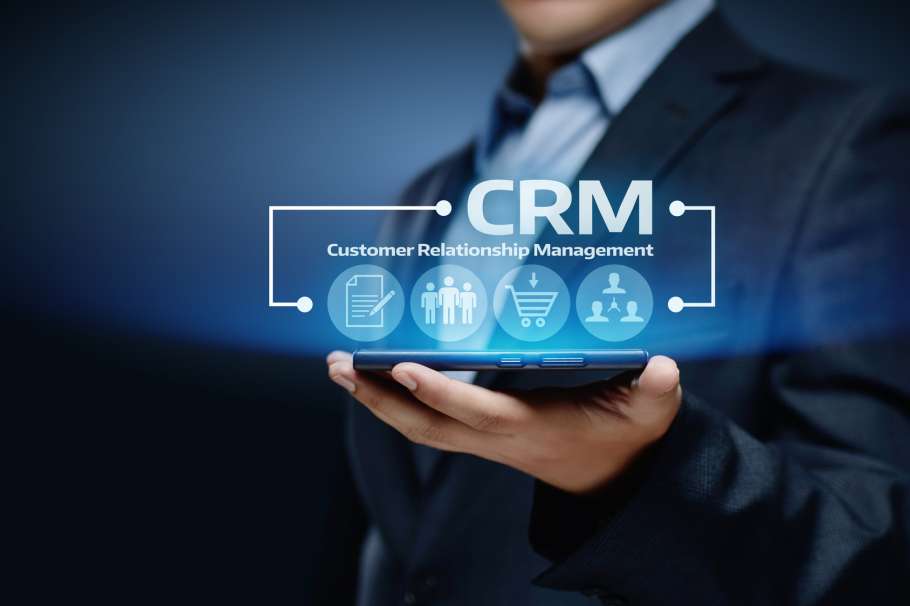
- Determine What the CRM System Needs to Do
The purpose of CRM systems is to help you manage and build relationships with your customers. So to find out what you need your CRM system to do, you need to talk to people who are involved in those relationships, for instance, salespeople, customer relationship representatives and marketing associates. You might want to form a team of individuals who communicate with customers to help guide the search for the ideal CRM. By doing so, you also help ensure buy-in from those who will use the solution.
Ask these individuals what they want the CRM solution to be able to do. Common CRM capabilities include:
- Contact management: creating a hub of all customer data accessible by everyone involved in the relationship
- Dashboards and reports, which provide at-a-glance summaries of business metrics, such as sales pipelines, sales cycles, lead sources, conversion rates, sales profitability and more
- Lead management: helping you to follow-up on leads and convert them into sales opportunities
- Campaign management, which assists in running campaigns and lead generation programs and tracking their success. This feature enables you to make adjustments to campaigns rapidly and compare campaign results.
- Social media management which integrates with social platforms to provide enhanced customer profiles, monitor social activity and more
- Forecasting capabilities that free you from number crunching and offer access to all the data in one place
- The service desk is something many people overlook as it usually does not involve sales nor marketing. However, it is a vital touch point with your client base. If your CRM system is integrated or includes a service desk module, it will allow sales and marketing to incorporate their activities with your existing clients and take into account the clients’ ongoing communications and problems they may be facing. Remember it costs six to seven times more to acquire a new client than it does to retain an existing one.
Given the expanding abilities of CRM solutions, you’ll want to discuss how your team is managing customers today, plus what they would like to be able to do in the future. For instance, perhaps they are not currently fully using the potential of social selling because they don’t have tools to make it easy. With this function incorporated into a CRM, however, representatives might be more likely to leverage it in their customer interactions.
- Make Sure It’s Usable
If you find a CRM system that incorporates all the features customer-facing associates want, but it’s not user-friendly, they won’t use it.
So look for a system that is easy to use and ask the vendor to let your organization test drive it before buying it. Assemble a team of associates from each function that will be using the CRM. Have them use it to perform their daily tasks and to try out some of the new features.
Ask these associates whether it’s easy to use and works well. If not, move on.
- Insist on Being Mobile
Today people want answers wherever they are and whatever time of day. So your salespeople need to have access to your solution when they are on the go. Make sure any solution you review has mobile capabilities.
- Get the IT Gurus Involved
Your CRM solution may need to be integrated with other systems, such as your marketing automation solution, phone system, content management system, e-commerce, finance or ERP and chat. So before you buy anything, consult with your IT leaders to ensure that it has the integration tools (API) needed and that they are comfortable with integrating it with other business systems. Remember always to look forward. Your organization and the tools available will change over time. Make sure your CRM will be able to evolve with your organization and the rest of the world.
- Assess the Partnership
The CRM solution is only part of the equation for success. You will also be working with the CRM vendor. You need to feel comfortable with them as a long-term partner.
As you go through the steps of determining whether they offer the right product, also consider how they treat you. Are they selling you on all the add-on features whether you need them or not? Or are they acting as a consultant, assessing your needs and providing information that helps you to make a good decision on what’s right for you? A business partner will also talk with you about how to implement the solution, and your ongoing requirements might be for support and training.
- Consider the Cost
If you’re down to a couple of choices after going through steps above, you’ll want to compare costs. When you do so, make sure any package the vendor offers covers your needs. If there are extra costs involved for support or required customization, add these in so you can compare apples-to-apples. Look at the long term costs, as many companies in the sector will provide introductory pricing. You may discover, however, that after the initial period your ongoing costs are much higher.
Finding the right CRM solution for your company is not an easy task. If, however, you take it step-by-step and seek input from users and your IT team, you’ll be more likely to be satisfied with your implementation.